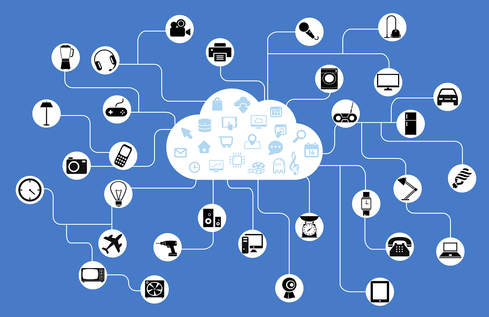Google AI Can Spot Image Location With 'Superhuman' Accuracy
The human mind can't keep up with algorithms that tap vast data sets. The latest example is Google's convolutional neural network called PlaNet that can identify where photos were taken based on the pixels in the image.


10 IoT Development Best Practices For Success
10 IoT Development Best Practices For Success (Click image for larger view and slideshow.)
Humans should know better than to take on machines. John Henry managed to outrace a steam drill, as American folktales tell it, but his victory came at the cost of his life. Since then, we've accepted that machines dig faster than we can by hand.
Though machines have more strength than humans, for a time we consoled ourselves that we could outthink them. But that's becoming less and less true. In 2011, Ken Jennings and Brad Rutter tried to outwit IBM's Watson in a game of Jeopardy and lost, just as chess masters and Go experts have done against artificial intelligence opponents.
The latest cognitive competition comes from Tobias Weyand and James Philbin, two Google researchers, and Ilya Kostrikov, who is affiliated with RWTH Aachen University in Germany. The three computer vision scientists have developed a convolutional neural network called PlaNet that can identify where photos were taken based on the pixels in the image.
For the purpose of identifying where a particular picture was taken, the system can attain "superhuman levels of accuracy," the researchers state in a paper describing the system.
PlaNet doesn't rely directly on image metadata, which often includes geolocation information. Rather, it calculates likely locations from the massive set of geocoded images used to train it (490 million Google+ images) and to test it (126 million Google+ images).
The researchers conducted a contest between PlaNet and 10 experienced human travelers though Geoguessr.com, a website that presents Google Street View imagery and invites players to guess where the image was taken. Against the human competitors, the researchers entered PlaNet's guesses, which were based on screen shots taken from the website and fed into the system for analysis.
Humans were not allowed to pan or zoom, so that they had to make guesses using the same image information presented to PlaNet.
But the playing field wasn't really level. Human players had the opportunity to recognize visible signage, vegetation types, architecture, and clues like the direction of traffic on a street to help them guess. As the paper notes, the guessers may have also known that Street View isn't available in many countries.
At the same time, PlaNet is able to draw on far more data than any individual, and it can do so with perfect recall.
Fair or not, the human players lost. Of the 50 rounds played, PlaNet won 28, with a median localization error of 1,131.7 km, compared to 2,320.75 km among human players.
[Read Google Cloud Vision API Gives Glimpse Into AI, Machine Learning.]
"We think PlaNet has an advantage over humans because it has seen many more places than any human can ever visit and has learned subtle cues of different scenes that are even hard for a well-traveled human to distinguish," the researchers said in their paper.
However, brute force and brute computational power don't count for everything. According to a recent Bloomberg report, Mercedes Benz recently began shifting some automotive assembly line work from robots to people, because humans are more adept at variation than machines.
But technology companies like Apple, Facebook, Google, and Microsoft are counting on artificial intelligence for the next wave of innovation in the industry. On an earnings call last October, Google CEO Sundar Pichai said, "Machine learning is a core, transformative way by which we're rethinking everything we're doing."
That's a view many companies and investors appear to share. According to research firm CB Insights, AI funding has multiplied nearly sevenfold, from $45 million in 2010 to $310 million in 2015.
Rising stars wanted. Are you an IT professional under age 30 who's making a major contribution to the field? Do you know someone who fits that description? Submit your entry now for InformationWeek's Pearl Award. Full details and a submission form can be found here.
About the Author
You May Also Like






